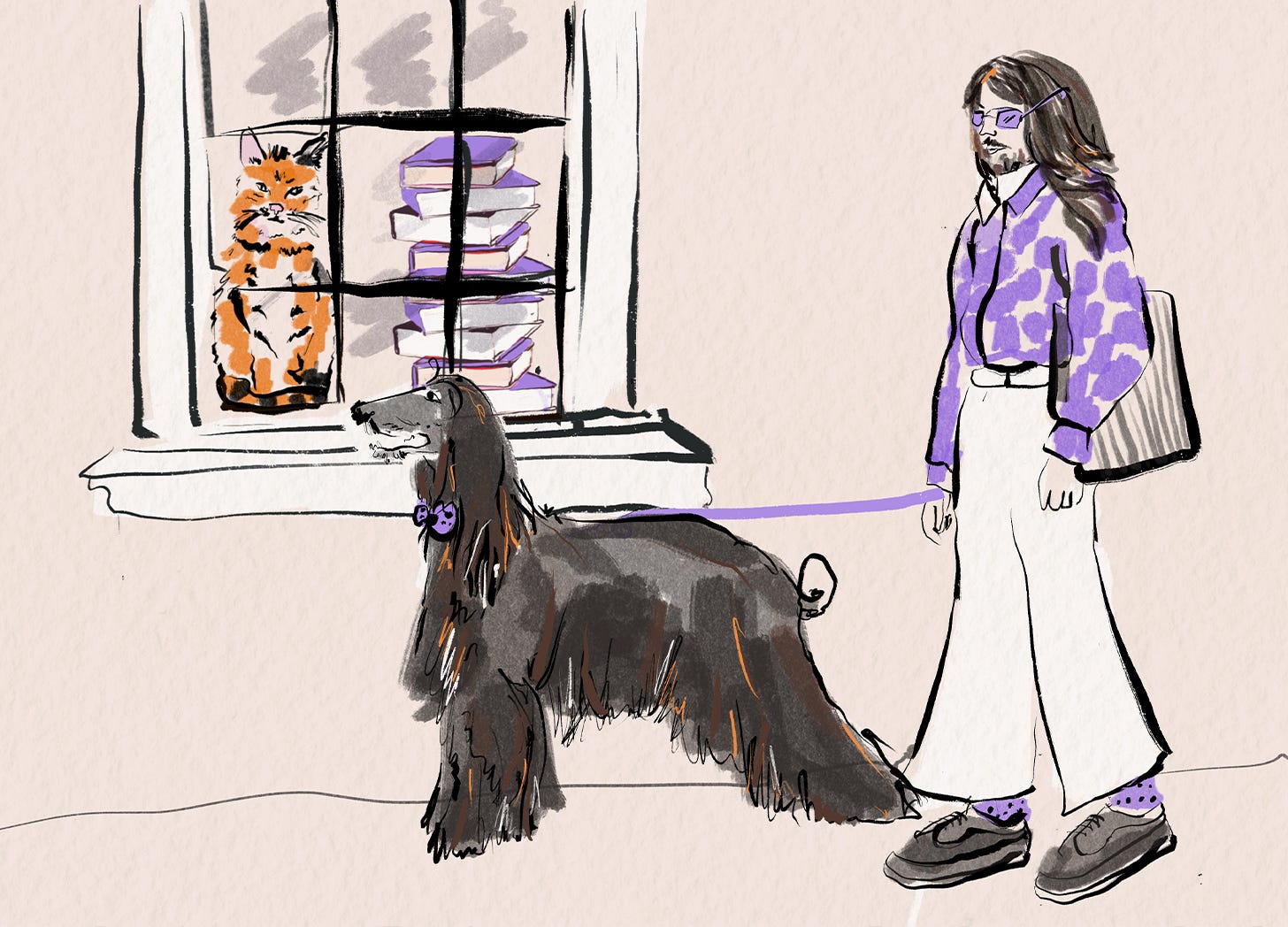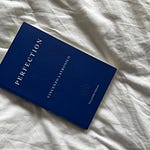I have certain strengths when it comes to life (and writing), but patience is not among them. I am a magpie for the new, alighting on nascent projects and glittering ideas as if they were foil milk bottle tops. New things are fun to nurture and breathe life into; they await potential. Sometimes it feels like an idea or a proposal or a book or a podcast, even, is a kind of flat paper lantern. You can be the person to leave it there, or you might be the person whose hands open it up and place a candle inside, and watch it rise into the heavens.
But while starting something takes a certain kind of freewheeling energy, maintaining it is another. Encouraging a paper lantern across a village, or a city, or even a sea is a task of huge, often unglamorous proportions. It’s one thing to grab a new notebook and fill in the first few pages; it’s quite another, far less alluring matter to keep going until you have something of substance. That work is often invisible and boring. It’s about showing up when you don’t really want to - and that takes as much patience as it does repetitive practice.
When Rowan Hisayo Buchanan spoke to us for In Haste we asked her about teaching, because as well as being an award-winning novelist (her most recent novel, The Sleep Watcher, was released in paperback last week) she also teaches creative writing. What, we asked, is the piece of writing advice she offers most often to those she works with? “Patience”, she replied, admitting that she was also a person with no patience.
She broke it down for us: “There are some writers I see who write something, and it isn’t quite what they imagined, it isn’t quite working, and so they throw it out, and they write something new. And they throw it out, and they write something new. And they’re not able to sit with the discomfort of it not being quite right and work through to something they’re happy with.
“And then I see, weirdly, the opposite thing, which I think comes from the same place. Which is writers who are constantly re-editing the first five pages, because they want to get the voice right, and they stick with those first five pages and go over and over and over them and I think for most people, if they write the rest of the story, it’s much easier to figure out what those five pages need. But they’re so impatient to have something that feels like the finished thing. If they could let themselves live with something imperfect it would have the chance to grow.”
I have been both of those writers. I think a lot of people have. Most of us have, at some point in our lives, encountered the disappointment of having an idea in our heads of what we want to make - perhaps it was a drawing, when we were small, or an elaborate meal once we grew up - and being faced with the reality of something that doesn’t match up. One option of dealing with this is, as Rowan says, to cast it aside. The other is to work into it in a fervour to try and make it right. In reality, the only way to really get around it is to wait: chalk the drawing, or the cake, or the chapter up to experience and, in the case of writing, take the time to think on how to better it.
It was somewhere between writing my first and second long-form books that I realised that I needed time to write well. I could force myself to sit at the desk everyday and write something, but it wouldn’t have been any good. I needed to have the confidence - and, crucially, the patience - to know that my best writing comes from thinking, and thinking takes time. Months, sometimes.
I’ve been thinking about patience a lot recently because my latest manuscript has demanded it. I sold the book days before I gave birth, and had I not had a baby I may have started researching and writing it then. Instead, I navigated life with a newborn, then life with an unwell baby, and pushed the deadline back from a hospital ward. I eventually sat down and started writing in earnest nearly a year after selling the book - and thousands of words came out in a matter of hours.
A few weeks on and I’m in that place of discomfort Rowan describes to us: I know it isn’t quite right, but I also know that I have to be patient, and I have to keep showing up, and it will get there. At times like this the new is incredibly alluring, and that’s when the very tedious discipline of professional writing arrives.
Leaning into patience can pay dividends, too. Publishing is slow, especially after a career as a journalist. People take years to read your books, often long after you’ve cognitively moved on from them. But that’s also the beauty, too: there are few other creative works that can linger on a shelf for someone to find them when they most need them. Patience as readers is a given - we dedicate time to reading books. It makes sense, then, that we should give time to writing them too.
- Alice Vincent















Share this post